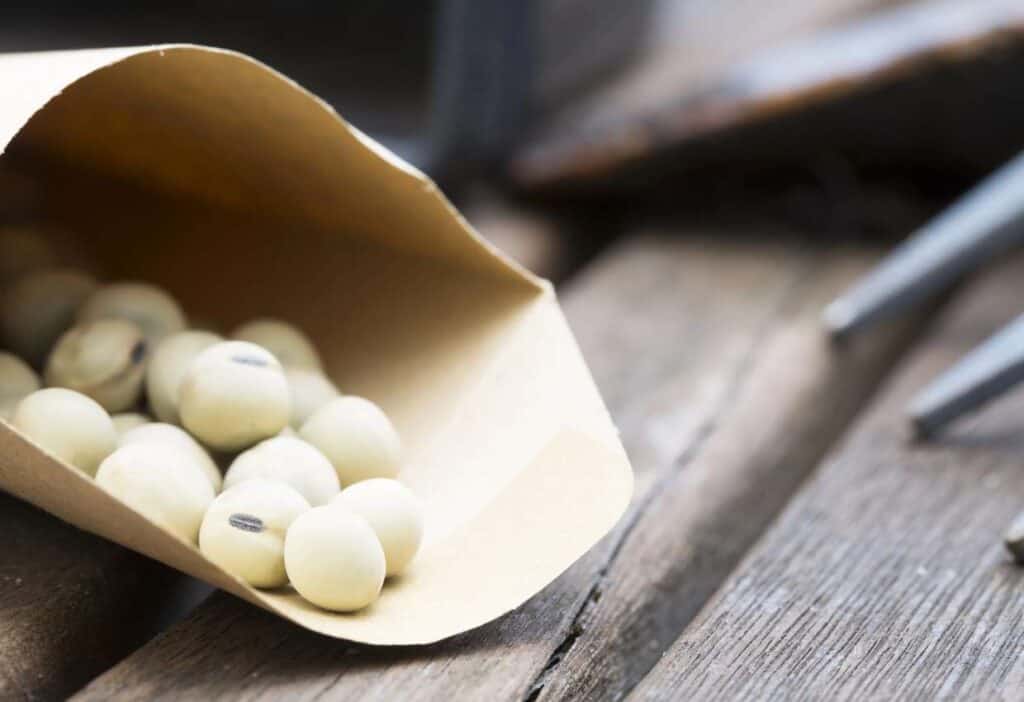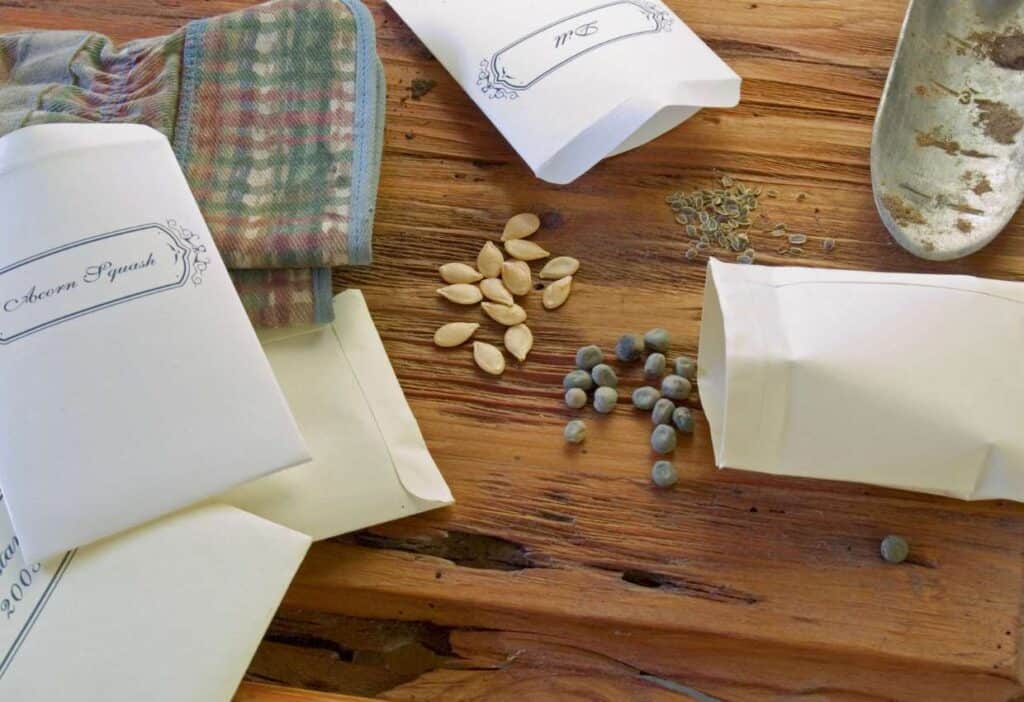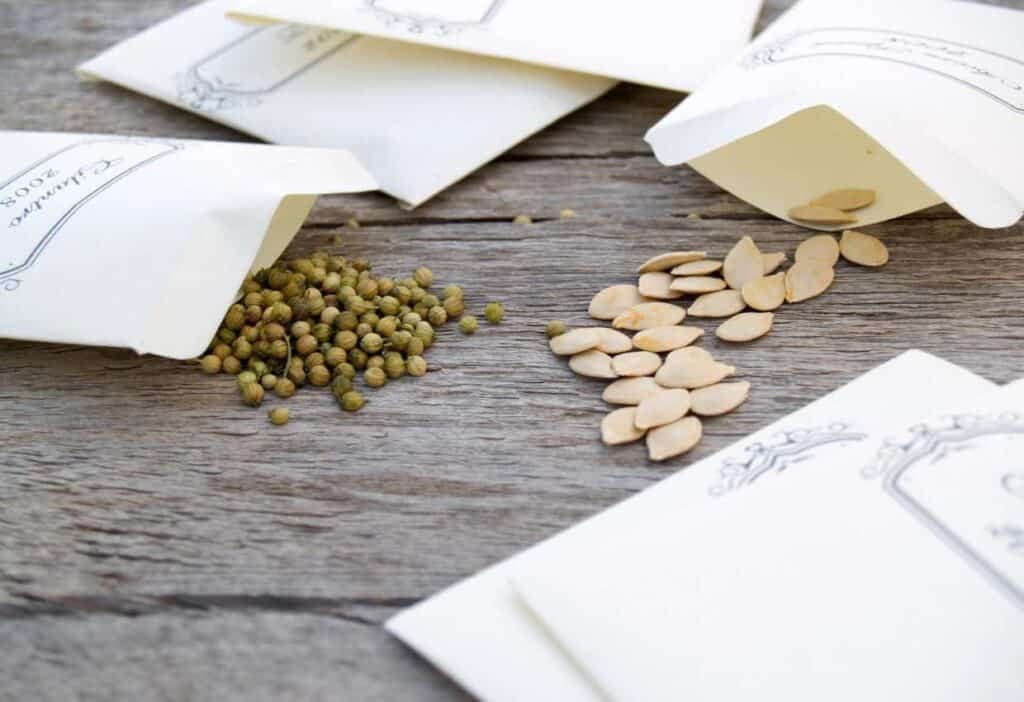Want to grow purple carrots this summer? How about blue corn?

Heirloom seeds link to our agricultural past and provide a valuable resource for future generations. Learn about these special seeds and why you should choose them for your garden.
Understanding heirloom seeds
Heirloom seeds come from plants passed down through generations, often over a hundred years or more. They’re saved and shared because of their valued characteristics, such as flavor, productivity or resilience to local growing conditions.
Unlike hybrid seeds, heirlooms are open-pollinated. This means they reproduce themselves through natural pollination from insects, birds, wind or human hands. This process allows the seeds to keep their unique traits year after year.
Heirloom seeds vs. organic seeds
While using heirloom and organic seeds are both considered sustainable gardening practices, they aren’t the same. Heirloom refers to the seed’s lineage and history, ensuring the plant’s genetic makeup remains unchanged for generations.
On the other hand, growing conditions define organic seeds. These seeds come from plants raised without synthetic fertilizers, pesticides or genetically modified organisms (GMOs).
Heirloom seeds can be organic if grown under organic conditions. This combines the best of both worlds and makes them good choices for gardeners who want to grow wholly natural and sustainable gardens. Whether you plant a potager garden, a herb garden or a flower bed, adding heirlooms could be a good choice.
5 reasons to choose heirloom seeds

Heirloom seeds can grow flowers, vegetables or herbs that add striking color to your patio or outdoor balcony vertical garden. Before you visit the nursery or buy seeds online, learn about the benefits of including these seeds in your garden.
Used by generations
Heirloom seeds carry stories and traditions from the past. Because of their exceptional qualities, including being able to thrive in winter gardens, these seeds have been nurtured, selected and passed down through families or communities. Planting heirloom seeds can connect you to the history of agriculture in your region and your ancestors’ way of life, keeping these traditions alive for future generations.
The allure of unusual beans and vegetables that grow from heirloom seeds can captivate your children and convince them to help with the garden. Look through an heirloom seed catalog to find colorful, easy vegetables for kids to grow.
“I love growing heirloom tomatoes and not just because it feels like I’m connecting with my grandparents and more. I find that they have a lot more flavor and many types of flavor available than regular seed varieties. They also tend just flat out to look cooler, and that makes it more fun to use them in all sorts of recipes once I harvest them.”
— Michelle Price, Honest and Truly
Stabilizes your seed supply
Relying on heirloom seeds can help gardeners avoid the pitfalls of seed shortages when planning a garden. As these seeds are saved and swapped within communities, gardeners aren’t as dependent on commercial seed suppliers. This ensures a diverse, resilient and secure food supply, even when commercial seeds are scarce.
Unusual varieties
Heirloom seeds give us access to unique and unusual plant varieties that you won’t find in the average garden center. From tomatoes with striking colors to edible flowers and rare herbs with unique flavors, heirloom seeds expand the biodiversity of your garden. This diversity makes gardening more exciting and helps preserve plant varieties that might otherwise be lost.
Saves money
One significant benefit to these seeds is the opportunity for seed saving. With heirloom seeds, gardeners can save seeds from this year’s harvest to plant next year. This reduces the need to purchase new seeds annually. Over time, plants grown from heirloom seeds adapt to the local environment, potentially requiring less water, fertilizer and care.
And then there’s the opportunity for community sharing. The tradition of sharing heirloom seeds among gardeners further reduces costs, as seeds are often exchanged or bartered without money. Check your local library or community garden for seed exchanges.
“Heirloom seeds are a tremendous bonus, in my opinion. I can harvest and dry the seeds to replant, unlike fruit and vegetables from hybrid seeds. And for tomatoes, especially, I feel the flavor is far superior to modern varieties.”
— Glenda Embree, Glenda Embree
Tastes better
Many gardeners and chefs may prefer heirloom varieties for their superior flavors. Heirloom fruits and vegetables may taste better than commercially bred varieties, typically selected for their shipping durability and shelf life rather than flavor. Growing these varieties means enjoying food as it was meant to be tasted — rich, full and delicious.
Add heirloom seeds to your garden

Heirloom seeds may seem trendy now, but they’ve been around for ages. These seeds stand the test of time. They connect to agricultural heritage and are a step towards a sustainable future.
Choosing these types of seeds allows gardeners to enjoy the rich flavors and unique varieties these plants offer while contributing to biodiversity and preserving plant genetics. Whether you’re a seasoned gardener or just starting out, consider adding some heirloom seeds to your garden this year.
Sarita Harbour is a homeschooling, homesteading mom and a long-time business and finance writer. She created An Off Grid Life to help people become more self-reliant. Sarita and her family live off the grid in Canada’s Northwest Territories.